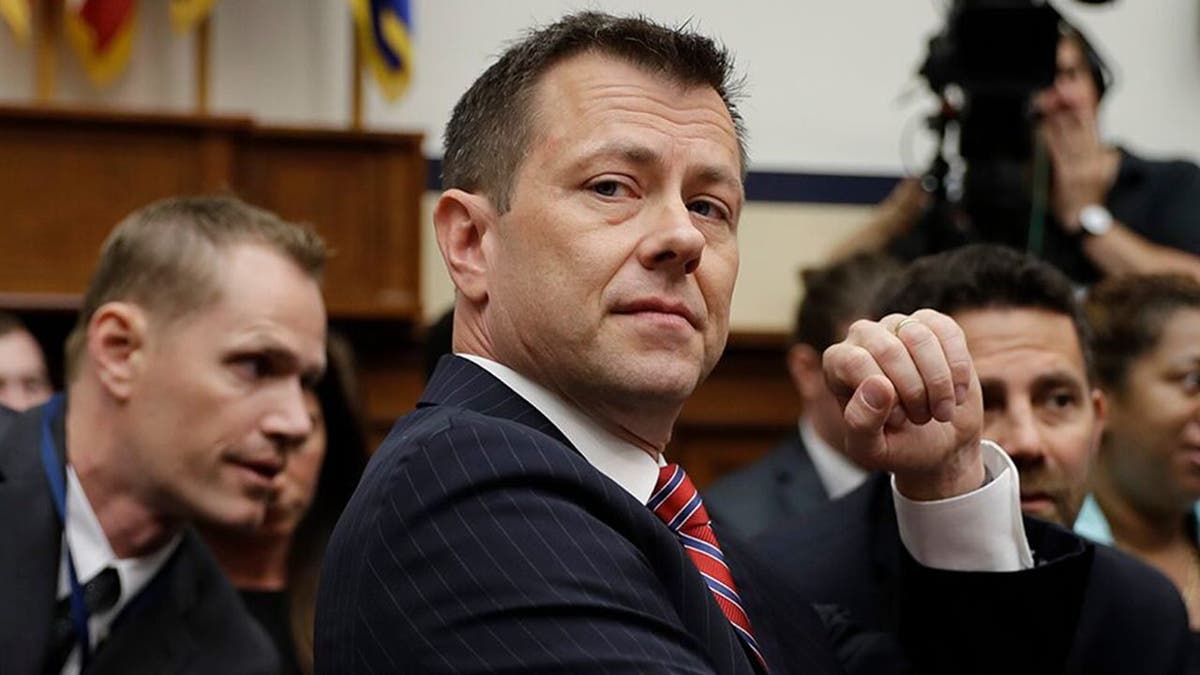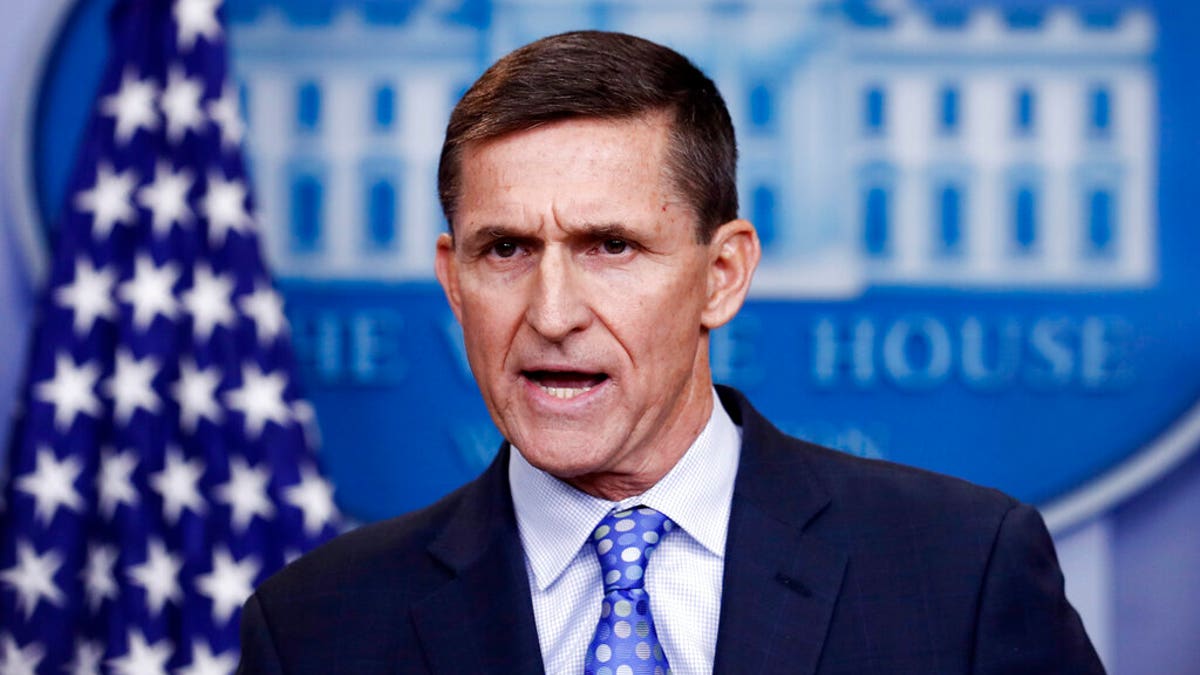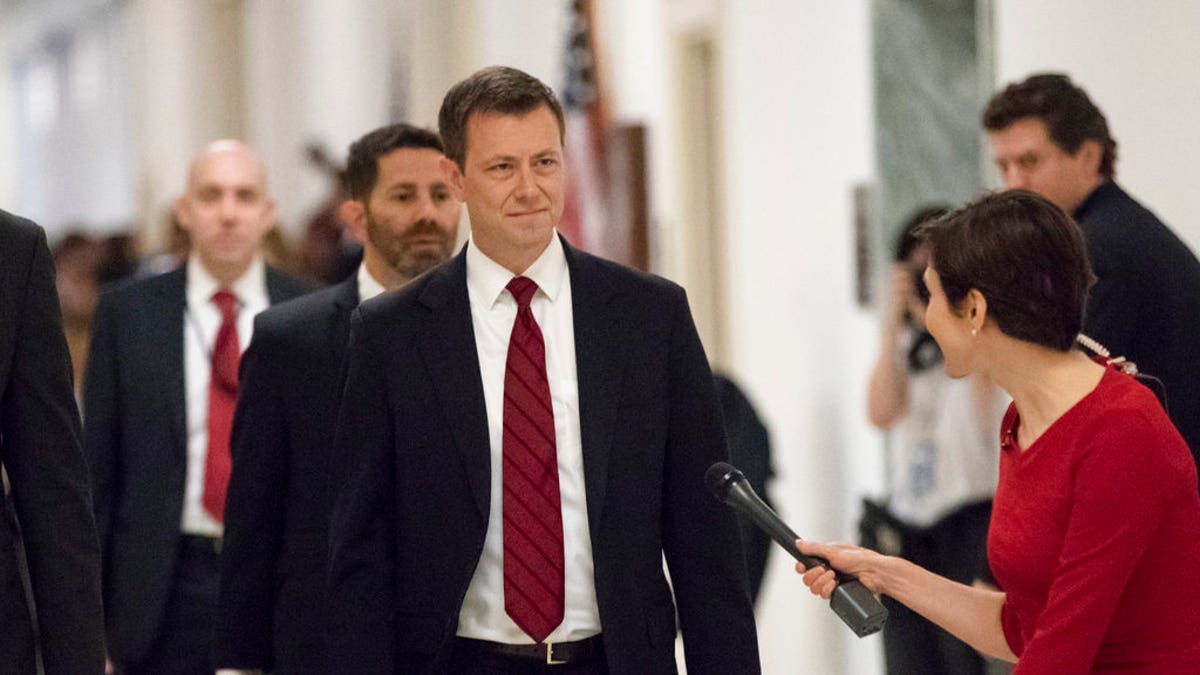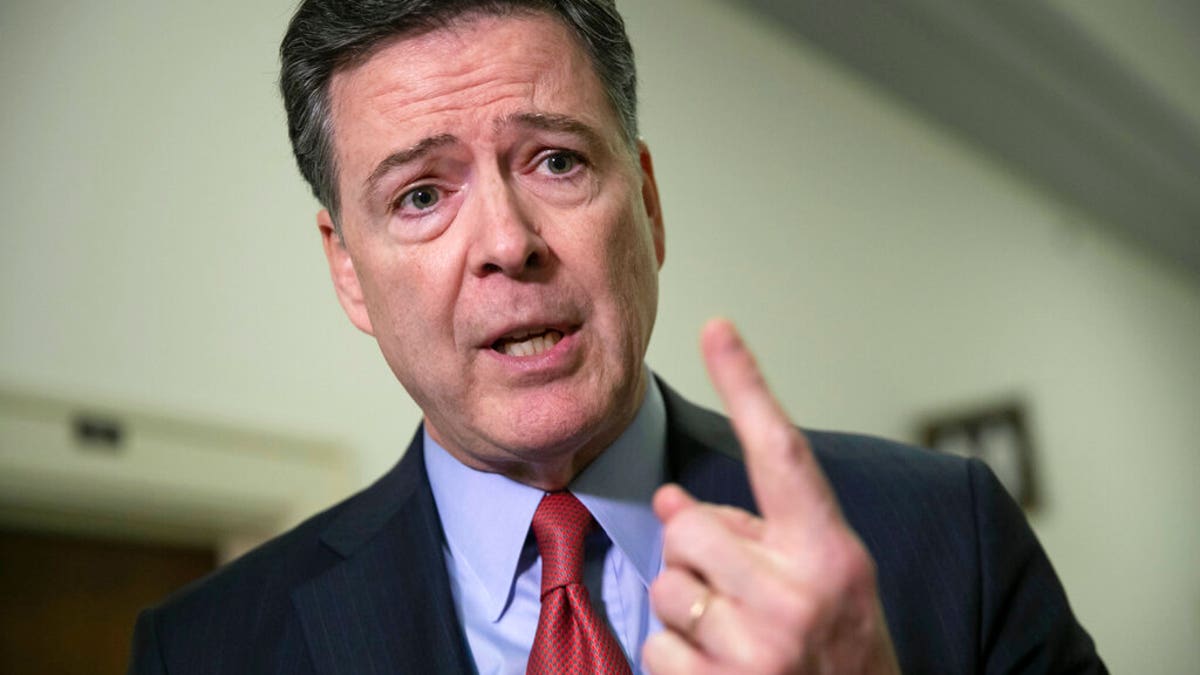What to know about Emmet Sullivan, the judge in long-running Michael Flynn case
Emmet Sullivan, a judge for the U.S. District Court for the District of Columbia, made headlines when he decided to allow 'amicus curiae' briefs in the case against former National Security Adviser Michael Flynn after the Department of Justice moved to dismiss the charges against him.
Washington, D.C. District Court Judge Emmet Sullivan's lawyers issued an exceedingly rare response on his behalf to the D.C. Circuit Court of Appeals on Monday, explaining that the judge hadn't dismissed the case against former national security advisor Michael Flynn -- as requested by both federal prosecutors and Flynn's lawyers after a mountain of exculpatory information surfaced -- in part because "unusual developments" provided a "reason to question" the Justice Department's motives.
Minutes later, the DOJ submitted its own filing calling for the case to be dismissed, suggesting FBI agents may have manipulated a key document, and slamming efforts to keep the prosecution alive by doubting the DOJ's integrity. The appellate court had invited the DOJ to weigh in on the matter.
"This Court should issue a writ of mandamus compelling dismissal," the DOJ wrote in a filing signed by Solicitor General Noel Francisco, who ordinarily represents the government before the Supreme Court. Francisco's imprimatur was significant, and indicated the DOJ was taking Sullivan's actions seriously.
"Under Articles II and III of the Constitution, the power to prosecute belongs to the Executive, not the Judiciary," the government continued. "Federal Rule of Criminal Procedure 48, read against the backdrop of that constitutional principle, required the district court to grant the government's motion to dismiss the indictment with prejudice because that motion was unopposed."
That rule of procedure states: "The government may, with leave of court, dismiss an indictment, information, or complaint."
READ SULLIVAN'S RESPONSE ; READ THE DOJ'S RESPONSE
"That language does not authorize a court to stand in the way of a dismissal the defendant does not oppose, and any other reading of the Rule would violate both Article II and Article III," the DOJ said. "Nor, under the circumstances of this case, may the district court assume the role of prosecutor and initiate criminal charges of its own." Sullivan has floated the possibility of holding Flynn in contempt for perjury, based on his statements during his guilty plea to one count of making false statements to the FBI, which Flynn now seeks to retract.
The DOJ concluded: "The district court plans to subject the Executive's enforcement decision to extensive judicial inquiry, scrutiny, oversight, and involvement. Under the Supreme Court's and this Court's precedents, it is clear and indisputable that the district court has no authority to embark on that course."
The government's brief also suggested that the FBI agents who interviewed Flynn in the White House on January 24, 2017, anti-Trump agent Peter Strzok and mysterious, little-known FBI agent Joe Pientka, may have helped draft a false FD-302 witness report documenting the interview, which led to Flynn's prosecution for lying to federal agents.
Independent journalist Mike Cernovich flagged that the DOJ specifically noted "the agents' handwritten notes do not reflect" that they ever asked Flynn about whether he recalled a conversation in which Russia's ambassador "stated that Russia had taken the incoming administration's position into account when responding to [the Obama administration's] sanctions." Nevertheless, the FD-302 states that Flynn told the agents he "did not recall" such a conversation. (Flynn's lawyers have said that, if Flynn was hesitant to answer the agents, it was because he was concerned with disclosing classified materials to agents without the proper clearance.)

The government further cited Ninth Circuit precedent from the "United States v. Hector" case that "the government may move to dismiss even after a complaint has turned into a conviction."
The DOJ went on to warn that Sullivan and his appointed amicus "may not conduct evidentiary proceedings based on speculation about the government's motives."
The amicus appointed by Sullivan, retired federal judge John Gleeson, has openly criticized the Trump administration's handling of Flynn's case, raising concerns that he was selected to improperly bolster Sullivan's efforts to keep the Flynn case going even though both the government and defendant want it dismissed. In 2013, Gleeson himself held that “the government has near-absolute power under [the Federal Rules of Criminal Procedure] to extinguish a case that it has brought" -- but he has since apparently changed his opinion.
The responses came after Flynn's attorney, Sidney Powell, had filed an emergency writ of mandamus to the D.C. Circuit Court of Appeals last month seeking the immediate removal of Sullivan from the case, saying that under appellate precedent set by the 2016 "United States v. Fokker Services" case, Sullivan or his replacement must dismiss the prosecution. Powell also cited Sullivan's bizarre comments, including his suggestion that Flynn could have been tried for "treason" and his apparent lack of familiarity with some facts of the case.

FILE - In this Feb. 1, 2017 file photo, National Security Adviser Michael Flynn speaks during the daily news briefing at the White House, in Washington. (AP Photo/Carolyn Kaster)
Under "Fokker," prosecutors' decision to drop a case can be overruled only in extreme cases. Powell asserted, citing the case, that a "district court cannot deny the Government’s motion to dismiss because the judge has 'a disagreement with the prosecution’s exercise of charging authority,' such as 'a view that the defendant should stand trial' or 'that more serious charges should be brought.'"
Additionally, Powell said that under "Fokker," judges cannot dispute the “conclusion that additional prosecution or punishment would not serve the public interest.” (“We are unaware … of any appellate decision that actually upholds a denial of a motion to dismiss a charge” on grounds that dismissal would not serve the “public interest,” the D.C. Circuit stated in the Fokker case.).
After reviewing Powell's request, the appellate court took the extraordinary step of ordering Sullivan to reply, and he in turn retained prominent D.C. attorney Beth Wilkinson -- who wasted no time in asserting that the virtually unprecedented posture of the case had met the "Fokker" standard.
"The unique facts of this case warrant evaluation by the trial judge before any review by this court," Wilkinson's team said in Monday's filing on behalf of Sullivan, referencing the high standard for the granting of a writ of mandamus, or order to compel the lower court to act, before there has been a final decision on the merits of the case. "For now, it suffices to say that the unusual developments in this case provide at least a plausible 'reason to question' the 'bona fides' of the government's motion."
Wilkinson continued: "While this court observed in 'Fokker' that separation-of-powers principles limit a judge's role in reviewing the government's charging decisions, it also explained that different separation-of-powers considerations may exist where the district court already accepted a plea and was proceeding to sentencing. Finally, the unusual facts of this case raise at least a plausible judicial question, anticipated by 'Fokker,' whether the presumption of regularity for prosecutorial decisions is overcome."

FILE - In this Dec. 1, 2017, file photo, Michael Flynn, center, arrives at federal court in Washington. (AP Photo/Susan Walsh, File)
Ryan Fayhee, an attorney at Hughes Hubbard & Reed who previously served as a top prosecutor and national security official at the DOJ, told Fox News the appellate court might find a reason to dismiss the relevance of the "Fokker" case. "Fokker" concerned a deferred prosecution agreement, and "not a knowing and voluntary guilty plea," Fayhee said. "In that case the judge’s role was ministerial and limited to whether the Speedy Trial Act could be extended in the interest of justice; it did not consider whether the Justice Department may dismiss a case post-plea (an unprecedented and novel issue); nor whether a district court judge may initiate a contempt proceeding as is being considered here."
The DOJ has reversed course and pushed for dismissal in the Flynn case ever since explosive, newly unsealed evidence emerged in April documenting the FBI's efforts to target Flynn -- including ex-FBI counterintelligence head Bill Priestap's handwritten memo debating whether the FBI's "goal" was "to get him to lie, so we can prosecute him or get him fired."
The documents also indicated that Strzok pushed to keep the Flynn case alive in early January 2017, even though career bureau officials wanted the matter closed. (Strzok was fired after it emerged he authored a slew of anti-Trump texts on his FBI-issued phone during the Hillary Clinton and Trump investigations he oversaw, including messages mocking Trump supporters. Strzok is seeking his job back; in response, the DOJ has said Strzok's behavior flagrantly exposed sensitive materials.)
Days after the FBI discussed getting Flynn to "lie" or getting him "fired," on Jan. 24, 2017, Strzok and Pientka interviewed Flynn in the White House and questioned him about his calls with Russia's then-Ambassador Sergey Kislyak. Because those calls were already recorded and in the FBI's possession, and because the FBI had already cleared Flynn of any wrongdoing in the calls, the DOJ has told Sullivan that any misstatements Flynn uttered about the calls were immaterial and could not reasonably give rise to a criminal prosecution.
"Was [Sullivan] required to grant the government's post-plea motion to dismiss, and reverse his findings that Mr. Flynn's false statements to the FBI about his contacts with Russia were material, without any inquiry into the facts set forth in, and surrounding, the government's filing?" Wikinson asked the appellate court in Monday's filing.
During the White House interview, Flynn told the agents "not really" when asked if he had sought to convince Kislyak not to escalate a brewing fight with the U.S. over sanctions imposed by the Obama administration, according to a later, contested FD-302 witness report prepared by the FBI weeks after the interview. Flynn also reportedly demurred when asked if he had asked Russia to veto a U.N. Security Council resolution that condemned Israel’s settlements in the West Bank.
In the alternative, Priestap's note suggested a possible goal at the White House interview was to get Flynn "to admit to breaking the Logan Act" when he spoke to Kislyak during the presidential transition period. The Logan Act has never been successfully used in a criminal prosecution and has a questionable constitutional status; it was enacted in 1799 in an era before telephones, and was intended to prevent individuals from falsely claiming to represent the United States government abroad.
Priestap's memo conspicuously surfaced only this month, even though the Justice Department and FBI had been under an obligation to turn over all relevant, potentially exculpatory materials to Flynn's legal team since February 2018. Attorney General Bill Barr had appointed U.S. Attorney Jeff Jensen to review the DOJ's handling of the Flynn case, and Jensen apparently unearthed the documents.
FLYNN ATTORNEY FILES EMERGENCY APPEAL TO SHUT DOWN JUDGE SULLIVAN'S ORDERS, BOOT HIM FROM CASE

FILE - In this June 27, 2018, file photo, Peter Strzok, the FBI agent facing criticism following a series of anti-Trump text messages, walks to gives a deposition before the House Judiciary Committee on Capitol Hill in Washington. (AP Photo/J. Scott Applewhite, File) (Copyright 2018 The Associated Press. All rights reserved)
"It is unusual for a criminal defendant to claim innocence and move to withdraw his guilty plea after repeatedly swearing under oath that he committed the crime," Wilkinson's team said. "It is unprecedented for an Acting U.S. Attorney to contradict the solemn representations that career prosecutors made time and time again, and undermine the district court's legal and factual findings, in moving on his own to dismiss the charge years after two different federal judges accepted the defendant's plea."
Flynn sold his home amid pressure from prosecutors, who also suggested they might charge Flynn and his son for violations of the Foreign Agents Registration Act (FARA) unless he pleaded guilty to one count of making false statements to FBI agents. Sullivan has said he is also reviewing whether Flynn knowingly lied to the court as part of the statements he made during his plea. While Flynn acknowledged he did not properly disclose his work with Turkey, as required by FARA, he wasn't charged with that conduct. (FARA prosecutions have increased sharply in recent years after decades of non-enforcement; The New York Times has reported, citing the Justice Department, that "from 1966 until 2015, the Justice Department pursued only seven FARA cases.")
Fox News has previously reported that the newly released Flynn documents cast doubt on whether Brandon Van Grack, a Justice Department prosecutor and former member of Special Counsel Robert Mueller's Team, complied with Sullivan's order to produce favorable evidence to Flynn. Van Grack has since been removed from the case.
OBAMA KNEW DETAILS OF FLYNN CASE, SHOCKING TOP DOJ OFFICIAL, DOCS SHOW
Van Grack has long informed Sullivan that the government’s so-called "Brady" obligations, referring to prosecutors' duty to turn over exculpatory materials to defendants, have been met. In an October 2019 filing, Van Grack denied governmental misconduct and assured the court that the government “has complied, and will continue to comply, with its discovery and disclosure obligations, including those imposed pursuant to Brady and the Court’s Standing Order.”
What Van Grack didn’t inform the court about – and didn’t provide to Flynn – was the newly unsealed January 4, 2017 "Closing Communication" from the FBI Washington Field Office, which recommended the FBI close its investigation of Flynn, as its exhaustive search through government databases “did not yield any information on which to predicate further investigative efforts."
Van Grack also failed to provide evidence to Flynn’s attorneys that anti-Trump former FBI agent Peter Strzok then immediately intervened and instructed the FBI case manager handling the Flynn investigation to keep the probe open, followed by indicators that the bureau would seek to investigate Flynn for possible violations of an obscure 18th century law known as the Logan Act -- which has never been utilized in a modern prosecution.

FILE - In this Dec. 17, 2018, file photo, former FBI Director James Comey speaks to reporters on Capitol Hill Washington. The Justice Department’s inspector general says former FBI Director James Comey violated FBI policies in his handling of memos documenting private conversations with President Donald Trump. (AP Photo/J. Scott Applewhite, File)
Nevertheless, Wilkinson argued, it was appropriate for Sullivan to appoint third-party amici to provide arguments, given that the defense and prosecution were now on the same side.
"Because the parties before him now support the same relief, Judge Sullivan turned to an approach used by federal courts across the country, as well as district courts in this Circuit: He appointed an amicus to present counterarguments, and set a briefing schedule giving the government and Mr. Flynn the last work."
"Neither the Federal Rules of Criminal Procedure nor the district court’s local rules authorize amicus participation in criminal cases," Powell wrote in her filing. "Prior to issuance of its extraordinary May 12, 2020, order, the district judge adhered scrupulously to the district court’s rules, denying some two dozen attempts by third parties to intervene or file amicus briefs in this very case."
It would not be unprecedented for the government to successfully move to dismiss a case after securing a conviction. In fact, Sullivan himself tossed the conviction of former Alaska Sen. Ted Stevens in 2009, when it emerged the government had not produced a slew of exculpatory "Brady" material.
HOROWITZ REPORT SPOTLIGHTS LITTLE-KNOWN AGENT PIENTKA'S ROLE IN FLYNN, PAGE MATTERS ; GOP DEMANDS INTERVIEW
Sullivan himself has come under the microscope, ever since he suggested Flynn may have committed treason, in the bizarre December 2018 courtroom outburst, and seemingly confused key details about Flynn's overseas lobbying work. More recently, Sullivan has suggested he isn't bothered by the FBI's missing FD-302 witness report of agents' January 24, 2017 White House interview with Flynn that Comey has previously said was prepared within days of the interview, as required by policy.
"[T]hings happen and documents are lost," Sullivan stated. "I mean, it just happens.”
Former FBI SWAT agent James Gagliano called that a "shockingly cavalier" reaction by Sullivan. Gagliano, who initially defended the FBI's Flynn probe, has more recently said Flynn was "railroaded," after this month's bombshell revelations.
"The district judge’s manifest confusion about the facts of this case, accusing General Flynn of treason and having 'sold out his country,' and his punitive intentions are well documented," Powell wrote. Sullivan also said he had "disdain" and "disgust" for Flynn's actions.














































